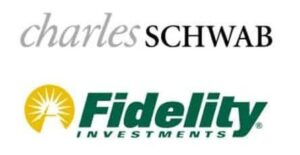-
401K Rollover Center
If you’re like most people, you have changed jobs quite a few times. All that job-hopping may help broaden skill sets, but it also creates a dilemma for those who are unsure what to do with your employer 401K Rollovers and other related prior employer savings plans as they have accumulated over time.
It is important to take action with your 401K or 403(B) plan accounts in a timely manner and not leave anything to chance. With all your statements piling up in the mail, you may be less likely to take the time to review and manage all your investments, which can be a considerable risk to your nest egg and retirement.
Getting Started Today: Ulin & Co. Wealth Management is a trusted, independent advisory firm. Call (561) 210-7887 for a no-obligation consultation.
Three 401K Rollover Options:
Contemplating your 401K or 403(B) options may be a bit of a mind-numbing task. The following three retirement plan distribution options may help you to simplify complex information so that you may make the best possible decisions with your account.
- Roll the money into your next employer’s 401K (or 403B) plan. A 401K rollover into a new employer retirement plan is not an alternative that is frequently utilized. In fact, plan sponsors are not even required to accept rollovers. Combining accounts into one location with your new employer for easier tracking and management while retaining your tax –deferral status can be a benefit, but there may be additional costs and limitations imposed by the new plan.
- Take a lump-sum (taxable) distribution of the money. The second option of cashing out your old 401K plan may be the most expensive choice, as you will pay Federal and State Income Taxes on 100% your plan distributions (plus an additional 10% penalty if you are under 59 ½.) Completing a home upgrade or buying a new car while paying upwards of 50% in tax with-holdings from your 401K distributions is not a smart move.
- Roll the money over into a self-directed Traditional IRA as a 401K rollover. The third option of a 401K rollover into a Traditional IRA can provide you the control and flexibility you may desire. By rolling your old employer plan to a Traditional (Rollover) IRA you will have greater access to your money along with unlimited investment choices.
Four Benefits of 401K Rollover
Consider that with many old employer plans, you cannot make new savings contributions, obtain a loan if you need quick cash, or even take out a partial plan-distribution for any reason. Also note that all 401(K) and 403(B) plan providers charge you fees just to administer the plan.
- Control: Depending on the investment platform, you can have a greater variety of investment options for asset management and more control over your investment expenses with a rollover IRA than with an employer retirement account.
- Strategy: By consolidating your old retirement accounts, you can better execute a comprehensive asset allocation strategy according to your goals and risk tolerance while reducing the chance of holding overlapping and or under-performing investments.
- Access: If you are under 59 1/2, you can easily tap your IRA balance for cash if you have an emergency unlike your 401(K) plan but will pay a 10% penalty plus income taxes for every dollar you withdraw (unless you execute a 5 year annual distribution 72(T) plan.
- Estate Planning: By consolidating your old 401(K) plans to a rollover IRA, your personal finances and estate will not only be more organized, but your heirs will have more flexibility with their inheritance options from an IRA than from a 401(K) or 403(B) plan.
A fact that surprises many people is that many employer plans impose significant restrictions for non-spouse beneficiaries. Some may require heirs to take the money all at once or limit how the money is handled. Your plan’s restrictions may have significant tax consequences, so be sure to check with the plan administrator.
Four Reasons Not to Rollover Your Old 401(K):
While it may be common sense to rollover your employer 401(K) to an IRA account, here are a few important points to consider where it could be beneficial to keep your retirement account intact with your former employer.
- Investments: Consider if your 401(K) has a good amount of subaccount options with lower cost institutional investments and a lower overall account fee, then you may consider to keep your account with your employer if you are proficient at picking investments and managing your portfolio.
- Protection: Consider that Federal law protects the money in 401(K) plans from most lawsuits and creditors, whereas IRA’s are protected by state law. Make sure to know how the laws work in your state if this is a concern to you.
- Cash Holdings: If you are risk-adverse, you may better benefit from your 401(K) stable value position that may provide a greater return on cash than money market and cash alternatives available in an IRA.
- Access: You may want to leave your account with your past employer if you need money and are laid off (or take early retirement at age 55 or later) and the plan allows you to tap your 401(K) assets for distributions without paying the 10% early withdrawal penalty.

Whether you are a do-it-yourself investor or seeking a second opinion, for those with $500K+ call (561) 210-7887 or fill out the form below to learn how our firm can benefit you. Schedule a no-obligation portfolio risk analysis and retirement income consultation with Jon Ulin, CFP®, Managing Principal and founder of Ulin & Co. Wealth Management (custody with Charles Schwab, and Fidelity). Let us help you Plan Your Best Life®.
Your financial check-up will include:
→Portfolio risk analysis and retirement income review
→Discussion of roadblocks that could prevent you from maintaining the retirement you earned.
→Opportunity to evaluate the value of our services and make an informed decision about hiring our firm.


